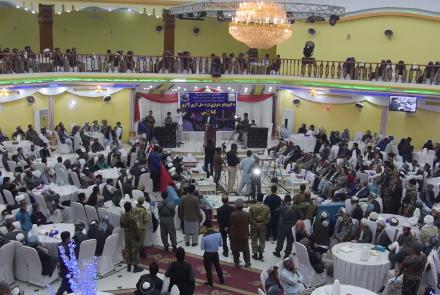Attending a Kochi meeting in Mazar-e-Sharif in Balkh on Monday, the nomadic tribe spoke out about not having access to health care services and education for their children.
They said they have faced these problems for years and that government has not done enough to help them.
They said their children are mostly illiterate because there are no schools for them.
Their representative in Zarai district in Balkh, Mohammad Ismael said: “We don’t have mobile clinics, we don’t have schools, and because of this we are disadvantaged.”
The Kochis in the region have also complained about powerful figures grabbing land that they traditionally use for grazing for their animals.
They have called on government to address the problems.
The deputy head of the Kochis Council in Balkh, Zalmai, said: “The areas we use for our animals to graze is being grabbed by powerful people who are using this land to farm.”
The exact number of Kochis in Afghanistan is not known, but Kochi officials said there are over 100,000 families in Balkh, Samangan, Jawzhan, Sar-e-Pul and Faryab provinces alone.
At Monday’s meeting, the Kochis also raised the issue of not having clean, drinking water.
The deputy head of the technical and vocational training center for Kochi’s, Mohammad Khan Salam, confirmed these issues and said the Kochis came together in Mazar on Monday to raise their problems.
Meanwhile, the deputy governor of Balkh, Mohammad Bashir Tawhidi, said the Kochis are facing problems resulting from land grabbing issues.


